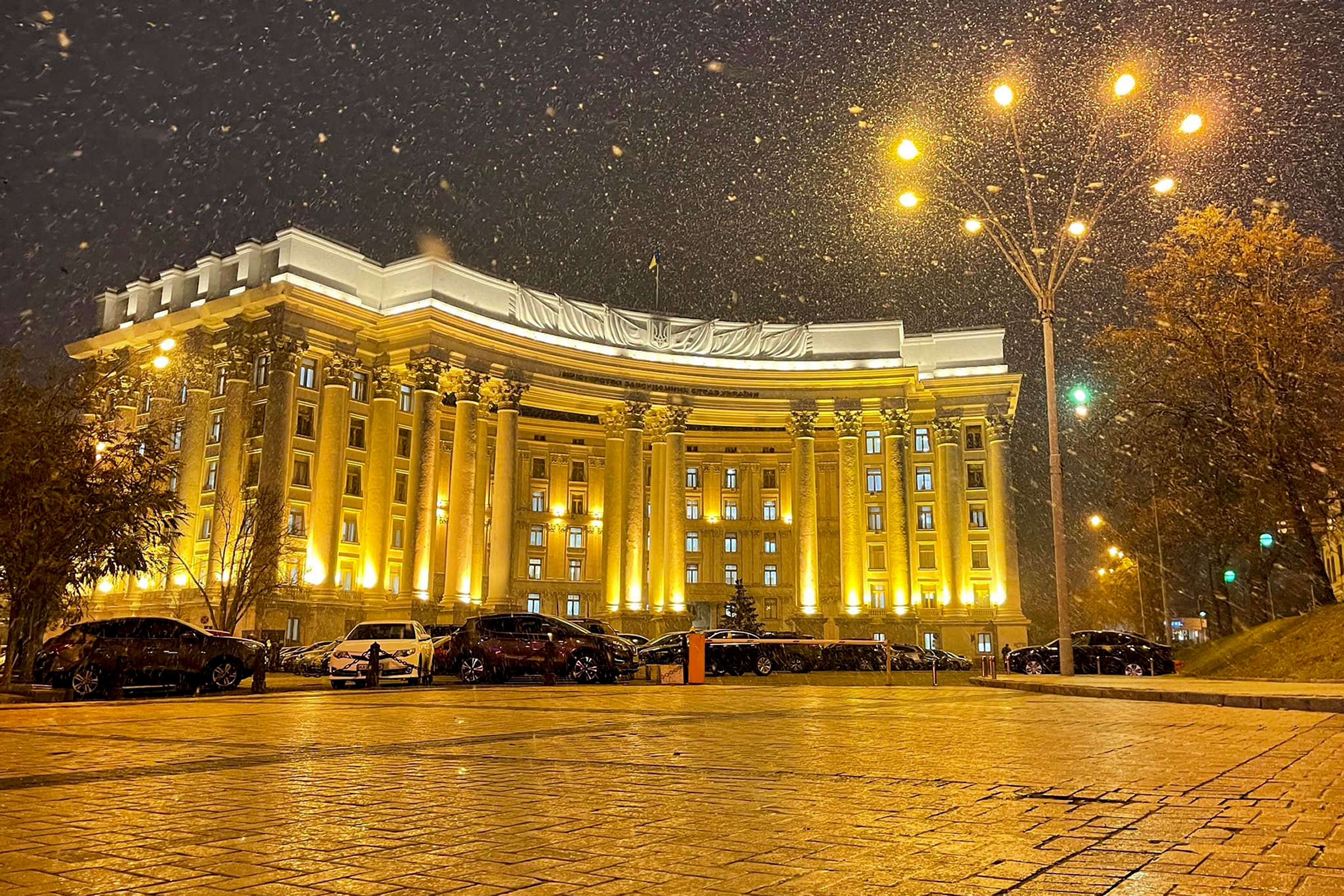Ukraine's government websites targeted in a hacking attack
Ukrainian officials and media reports say a number of government websites in Ukraine are down after a massive hacking attack

Your support helps us to tell the story
From reproductive rights to climate change to Big Tech, The Independent is on the ground when the story is developing. Whether it's investigating the financials of Elon Musk's pro-Trump PAC or producing our latest documentary, 'The A Word', which shines a light on the American women fighting for reproductive rights, we know how important it is to parse out the facts from the messaging.
At such a critical moment in US history, we need reporters on the ground. Your donation allows us to keep sending journalists to speak to both sides of the story.
The Independent is trusted by Americans across the entire political spectrum. And unlike many other quality news outlets, we choose not to lock Americans out of our reporting and analysis with paywalls. We believe quality journalism should be available to everyone, paid for by those who can afford it.
Your support makes all the difference.A number of government websites in Ukraine were temporarily down on Friday after a huge hacking attack, Ukrainian officials said.
While it was not immediately clear who was behind the attacks, they come amid heightened tensions with Russia and after talks between Moscow and the West failed to yield any significant progress this week.
Ukrainian Foreign Ministry spokesman Oleg Nikolenko told The Associated Press it was too soon to tell who could have been behind the attacks. "It’s too early to draw conclusions as the investigation is ongoing, but there is a long record of Russian cyber assaults against Ukraine in the past,” he said.
Moscow had previously denied involvement in cyberattacks against Ukraine.
The websites of the country's Cabinet, seven ministries, the Treasury, the National Emergency Service and the state services website, where Ukrainians' electronic passports and vaccination certificates are stored, were temporarily unavailable Friday as a result of the hack.
The websites contained a message in Ukrainian, Russian and Polish, saying that Ukrainians' personal data has been leaked into the public domain. “Be afraid and expect the worst. This is for your past, present and future," the message read, in part.
Ukraine's State Service of Communication and Information Protection said that no personal data has been leaked.
The country's minister for digital transformation, Mykhailo Fedorov, insisted that personal data was safe, since “the operability of the websites, not the registries,” was affected by the hack. Fedorov said that some of the attacked websites were blocked by their administrators in order to contain the damage and investigate the attacks.
He added that “a large part” of the affected websites have been restored.
The U.S. estimates Russia has massed about 100,000 troops near Ukraine, a buildup that has stoked fears of an invasion. Moscow says it has no plans to attack and rejects Washington’s demand to pull back its forces, saying it has the right to deploy them wherever necessary.
The Kremlin has demanded security guarantees from the West precluding NATO's expansion eastward.
Last month, Moscow submitted draft security documents demanding that NATO deny membership to Ukraine and other former Soviet countries and roll back the alliance’s military deployments in Central and Eastern Europe. Washington and its allies have refused to provide such pledges, but said they are ready for the talks.
High-stakes talks this week between Moscow and the U.S., followed by a meeting of Russia and NATO representatives and a meeting at the Organization for Security and Cooperation in Europe, failed to bring about any immediate progress.
The European Union s top diplomat said Friday that the 27-nation bloc is ready to mobilize all its resources to provide technical assistance to Ukraine and help it improve its capacity to weather cyberattacks.
Speaking at a meeting of EU foreign ministers in the French port city of Brest, Josep Borrell said the EU will mobilize its cyber rapid response teams. Borrell added that he would ask member countries to allow Ukraine benefit from anti-cyberattacks resources within the framework of the EU Permanent Structured Cooperation (PESCO), even though the country is not a member of the union.
“We are going to mobilize all our resources to help Ukraine cope with these cyberattacks,” Borrell said. “Sadly, we expected this could happen.”
Asked who could be behind the attack, Borrell said: “I can’t point at anybody because I have no proof, but one can imagine.”
___
Catherine Gaschka in Brest, France, and Dasha Litvinova in Moscow contributed to this report.